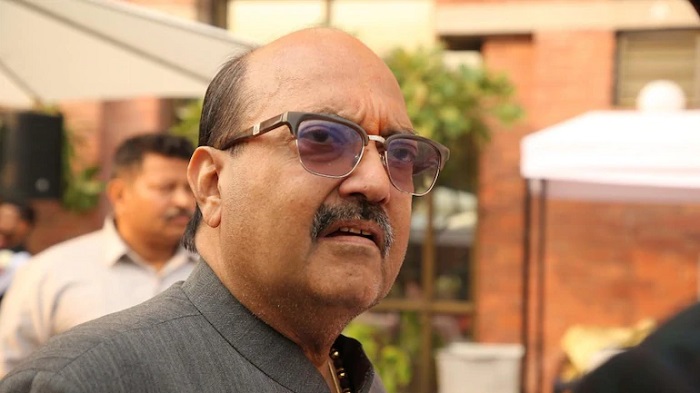New Delhi, Mar 9: A war of words broke out between the BJP and the Congress on Sunday over the Yes Bank crisis with the ruling party seeking to link it with the Gandhi family, while the opposition wondered if the prime minister and finance minister were "complicit" as the bank's loan book grew manifold.
Posting on Twitter a clip of a news channel report that Rana Kapoor, the arrested Yes Bank founder, had bought a painting from Congress leader Priyanka Gandhi Vadra, BJP's information and technology wing in-charge Amit Malviya alleged that every financial crime in India has "deep links" with the Gandhis.
The Congress dismissed the charge "fake" and called it a "diversionary" tactic.
It said Priyanka Gandhi had sold an M F Hussain painting of her father Rajiv Gandhi to Kapoor for Rs 2 crore, and the entire amount was disclosed in her income tax return of 2010.
Malviya tweeted, "Every financial crime in India has deep link with the Gandhis. Mallya used to send flight upgrade tickets to Sonia Gandhi. Had access to MMS (Manmohan Singh) and PC (P Chidambaram). Is absconding. Rahul inaugurated Nirav Modi’s bridal jewellery collection, he defaulted. Rana bought Priyanka Vadra’s paintings."
Congress' chief spokesperson Randeep Surjewala asked how does an M F Hussain painting of Rajiv Gandhi sold 10 years ago by Priyanka Gandhi to Yes Bank owner Rana Kapoor and disclosed in her tax returns connect with unprecedented giving of loans of Rs 2,00,000 crore in five years of the Modi government.
"More so, when (Kapoor's) proximity to BJP leaders is well known," he said.
Rubbishing the BJP's allegation, Congress spokesperson Abhishek Manu Singhvi at a press conference said it was a "diversionary" tactic by the government.
He noted that the bank's loan book rose from Rs 55,633 crore in March 2014, the year Narendra Modi became prime minister, to Rs 2,41,499 crore in March 2019.
"Why did the loan book rise by 100 per cent in two years after demonetisation i.e from Rs 98,210 cr in March 2016 to Rs 2,03,534 ar in March 2018? Were PM and FM sleeping, ignorant or complicit?" he asked.
The entire amount Priyanka Gandhi had received was in cheque and was fully disclosed in the income tax return, Singhvi said.
Surjewala, taking to Twitter, said instead of diverting from the real issue of people's money sinking into a bad bank, should not the government answer questions like how did loans given by Yes Bank rise from Rs 55,633 crore in March 2014 to Rs 2,41,499 crore in March 2019, an increase of almost Rs 2,00,000 crore in fiver years of the Modi government.
Why did the loans given by Yes Bank rise by a whopping 100 per cent in just two years after demonetisation, he asked.
Surjewala also questioned why did the prime minister address a conference sponsored by Yes Bank on March 6 despite the RBI moratorium.
"Why did the Haryana BJP government deposit over Rs 1,000 crore in Yes Bank a month ago, knowing that it was sinking? Is this figure Rs 3,000 cr? Did Fadnavis government in Maharashtra make similar deposits?" Surjewala asked.
"Of course, the government's media proxies won't dare to ask these questions. But the nation wants to know!" he said in a series of tweets.
Kapoor, 62, was arrested by the Enforcement Directorate in Mumbai after charges of alleged financial irregularities and mismanagement in the bank's operations surfaced and the RBI and Union government initiated action to control its affairs.






Comments
Daer sir Wish to join CBI as having a good knowledge of import and export today I read news about requirements bank officer for cbi department but it's iblo offered to public secrse bank officer i have been working 8 years in Pvt.banks . Kindly advice can i applied for said position.Regards hiren praPrajap 7227855576
Add new comment